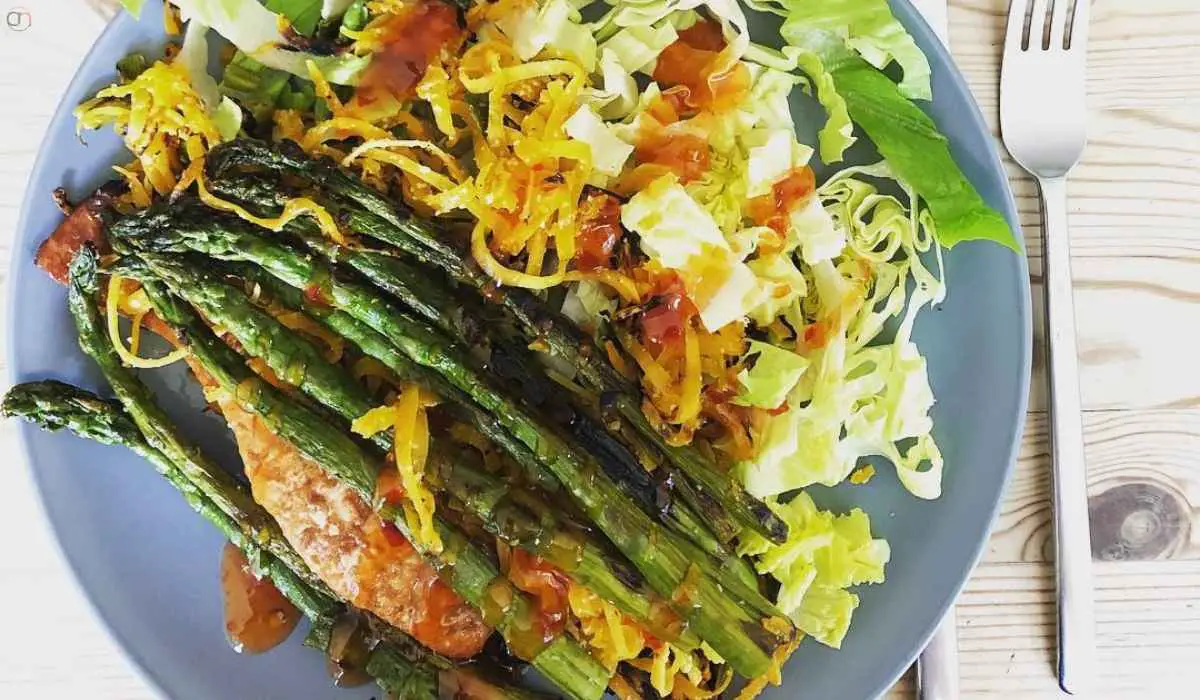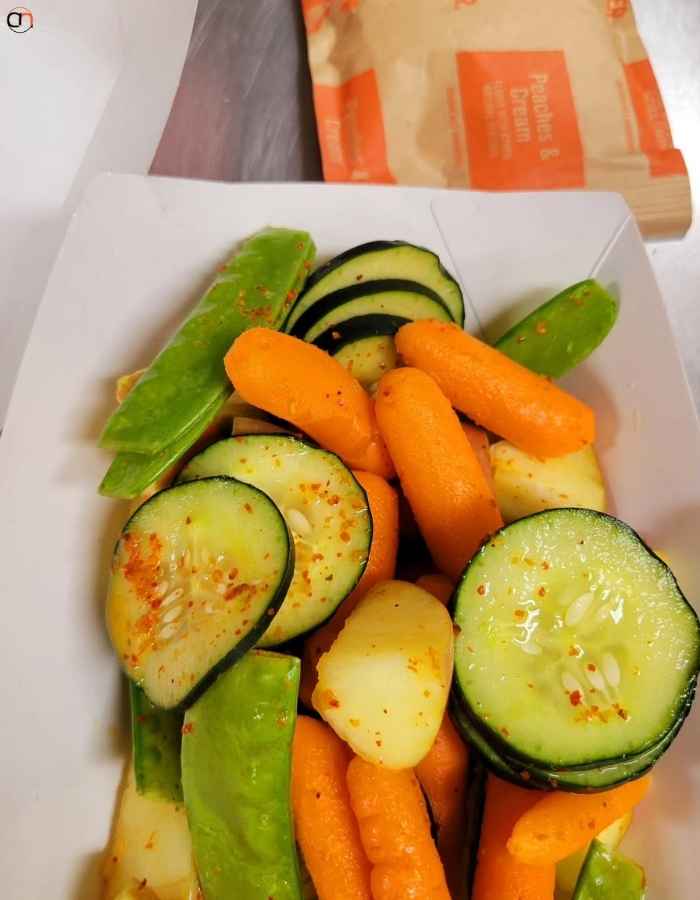20 Debloating Foods

Ever wake up feeling puffy or uncomfortable after a meal? You’re not alone! Bloating can sneak up from salty snacks, fizzy drinks, or just a busy lifestyle. The good news?
Certain foods can help reduce that bloat and bring relief—naturally. In this post, we’re diving into the best debloating foods that support digestion, reduce water retention, and leave you feeling light and energized.
Whether it’s for daily balance or a quick reset before an event, these food choices can make all the difference. Let’s get into it!
What Causes Bloating?
Bloating happens when your digestive system fills with excess gas or fluids, making your belly feel tight, full, or swollen. Several common factors can trigger this uncomfortable sensation. Eating too quickly or swallowing air while chewing gum or drinking through straws introduces extra air into your stomach.
Foods high in salt cause your body to retain water, leading to puffiness. Certain carbohydrates, like those found in beans, broccoli, and carbonated drinks, can ferment in the gut and produce gas.
Hormonal changes, especially during menstruation, can also cause bloating. Stress and an imbalance of gut bacteria might further slow digestion, increasing gas buildup.
Understanding these causes helps you choose the right foods and habits to keep bloating at bay and feel your best.
Top 20 Debloating Foods:
If you’re looking to ease that uncomfortable bloated feeling, certain foods can help soothe your digestion and reduce water retention. Here are 20 of the best debloating foods to keep on your radar:
-
Ginger – Known for its anti-inflammatory and digestive properties.
-
Cucumber – High in water and antioxidants, helps flush out excess fluids.
-
Papaya – Contains enzymes that aid digestion and reduce gas.
-
Yogurt (with probiotics) – Supports healthy gut bacteria balance.
-
Pineapple – Contains bromelain, an enzyme that helps break down proteins.
-
Bananas – Rich in potassium, which helps balance sodium levels and reduce water retention.
-
Peppermint – Soothes the digestive tract and relieves gas.
-
Fennel – Natural diuretic that helps reduce bloating and relax intestinal muscles.
-
Asparagus – Acts as a natural diuretic and supports kidney function.
-
Lemon Water – Encourages digestion and flushes toxins.
-
Celery – Contains a lot of water and fiber, which aid digestion.
-
Chia Seeds – High in fiber that helps move food through your digestive tract.
-
Zucchini – Water-rich and low in calories, supports hydration.
-
Kiwi – Helps digestion with fiber and enzymes.
-
Avocado – Packed with potassium and healthy fats to ease digestion.
-
Tomatoes – Rich in water and antioxidants.
-
Turmeric – Anti-inflammatory properties reduce digestive discomfort.
-
Green Tea – Natural diuretic and antioxidant-rich beverage.
-
Carrots – High in fiber for healthy digestion.
-
Watermelon – Hydrating fruit that flushes out excess salt.
Incorporating these foods into your meals can help ease bloating and support overall digestive health naturally.
Hydration and Bloat Relief:
Staying well-hydrated is one of the simplest yet most effective ways to reduce bloating. Drinking plenty of water helps flush excess sodium and toxins from your body, which can cause water retention and puffiness.
When you’re dehydrated, your body tends to hold onto fluids as a survival mechanism, making bloating worse. Aim for at least 8 glasses of water a day, and consider adding hydrating foods like cucumbers, watermelon, and celery to boost your fluid intake. Herbal teas, such as peppermint or ginger tea, also support digestion and soothe your gut while keeping you hydrated.
Remember, good hydration not only eases bloating but also promotes overall digestive health and well-being.
Foods to Avoid When Bloated:
When you’re feeling bloated, some foods can make the discomfort worse by causing excess gas, water retention, or slow digestion. Here are key foods to limit or avoid to help reduce bloating:
-
Carbonated Drinks – Soda and sparkling water introduce gas into your digestive system.
-
Salty Foods – Excess sodium causes your body to retain water, leading to puffiness.
-
Beans and Lentils – High in fiber and certain sugars that can ferment in your gut and cause gas.
-
Cruciferous Vegetables – Broccoli, cauliflower, cabbage, and Brussels sprouts are gas-producing for some people.
-
Artificial Sweeteners – Sorbitol and other sugar alcohols can cause digestive upset and gas.
-
Dairy Products – If you’re lactose intolerant, milk, cheese, and ice cream can cause bloating.
-
Fried and Fatty Foods – Slow down digestion, which can worsen bloating.
-
Processed Foods – Often high in salt and additives that contribute to water retention.
-
Onions and Garlic – Contain fermentable fibers that may cause gas in sensitive individuals.
-
Alcohol – Can irritate your gut and lead to dehydration and bloating.
Avoiding or reducing these foods when you’re bloated can help you feel more comfortable and support your digestive system.
Lifestyle Tips for Reducing Bloating:
Bloating can be managed effectively by making simple lifestyle changes that support digestion and reduce gas buildup. Here are some helpful tips:
-
Eat Slowly and Mindfully – Chew your food thoroughly and avoid rushing meals to reduce swallowed air.
-
Stay Active – Regular exercise stimulates digestion and helps move gas through the intestines.
-
Avoid Chewing Gum and Drinking Through Straws – These habits can cause you to swallow excess air, increasing bloating.
-
Manage Stress – High stress levels can affect digestion and worsen bloating, so practice relaxation techniques like yoga or meditation.
-
Stay Hydrated – Drinking enough water helps flush out excess salt and supports healthy digestion.
-
Limit Salt Intake – Reducing sodium can decrease water retention and puffiness.
-
Track Food Intolerances – Keep a food diary to identify and avoid items that trigger your bloating.
Making these habits into your daily routine can significantly reduce bloating and improve overall digestive comfort.
Debloating Foods Plan:
Here’s a simple, balanced meal plan designed to help reduce bloating and keep you feeling light and energized throughout the day:
Breakfast:
-
Overnight oats made with almond milk, chia seeds, and fresh berries (blueberries or strawberries)
-
A cup of peppermint or ginger tea to soothe digestion
Mid-Morning Snack:
-
A small bowl of watermelon or cucumber slices (both hydrating and natural diuretics)
Lunch:
-
Grilled chicken or tofu salad with mixed greens, avocado, cherry tomatoes, and a lemon-olive oil dressing
-
Steamed zucchini or carrots on the side
Afternoon Snack:
-
A handful of plain almonds or pumpkin seeds
-
Herbal tea or infused water with lemon and mint
Dinner:
-
Baked salmon or chickpea stir-fry with quinoa and steamed spinach
-
Light vegetable broth or miso soup
Evening:
-
Chamomile tea to relax and aid digestion before bed
This meal plan emphasizes anti-inflammatory, low-sodium, and fiber-rich foods that promote healthy digestion and reduce bloating.
Key Take Away:
- Managing bloating is all about choosing the right foods and adopting simple lifestyle habits that support digestion and reduce gas buildup.
- By focusing on hydration, mindful eating, and incorporating debloat-friendly foods into your daily routine, you can feel lighter and more comfortable every day.
- Remember, small changes can make a big difference in how your body feels!
Read Next: Top Gut Healing Foods
FAQs:
-
What causes bloating?
Bloating can result from swallowing air, certain foods that produce gas, water retention, or digestive issues. -
Which foods help reduce bloating?
Foods like cucumber, ginger, pineapple, and leafy greens are great for relieving bloating. -
How much water should I drink to reduce bloating?
Aim for at least 8 glasses a day to stay hydrated and help flush excess sodium. -
Can exercise help with bloating?
Yes, regular physical activity stimulates digestion and helps move trapped gas. -
When should I see a doctor about bloating?
If bloating is severe, persistent, or accompanied by pain, weight loss, or other symptoms, consult a healthcare professional.






